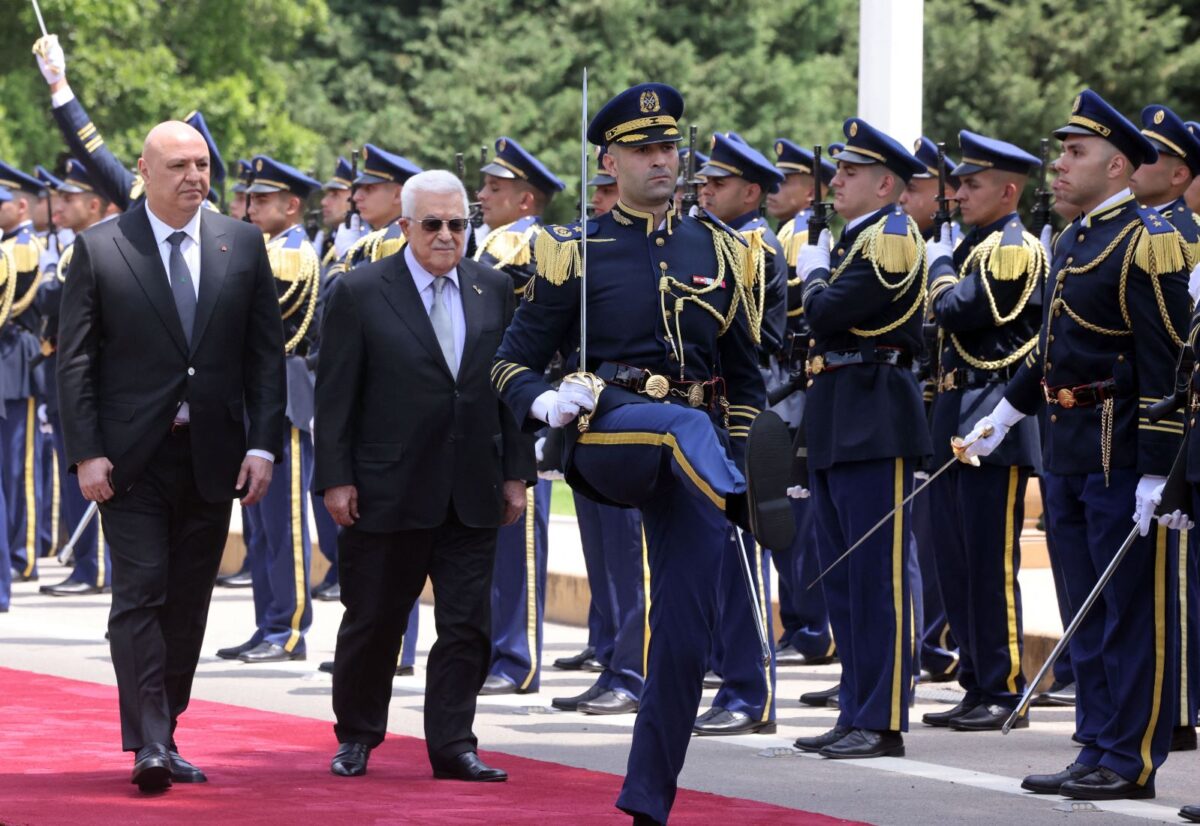
Abbas’s visit comes at a critical and exceptional moment, especially given the recent developments in Lebanese-Palestinian relations over the past months
Since the Hezbollah-Israeli war which Lebanon paid a heavy price for under the cause of supporting the Palestinian people, through to the ceasefire agreement that followed, it has become clear to all that these events have ushered in a new phase in Lebanon. In this new reality, Palestinian weapons, whether inside or outside the camps, will no longer be isolated from the broader security dynamics in the country.
Mahmoud Abbas’s visit to Lebanon has put several unresolved issues back in the spotlight, especially the long-running debate over Palestinian weapons. Although the topic has been raised many times before without real progress, this visit, his first since 2017 shows a stronger push for action.
Agreement to disarm Palestinian factions
The issue of Palestinian weapons became a key focus during Mahmoud Abbas’s visit to Lebanon. After his meeting with Lebanese President Michel Aoun, the two leaders released a clear joint statement. They agreed that only the Lebanese state should have weapons and that all other armed groups must be disbanded.
The statement also stressed the need to respect Lebanon’s sovereignty and borders. Abbas promised that Palestinian groups would not use Lebanese land to launch any military actions.
“Abbas’s visit is definitely a turning point. For the first time, there seems to be a serious effort to deal with this problem in a structured way,” said Political Science lecturer, Sanaa Mhanna explained to NOW.
“This isn’t just a routine visit, there’s real movement. The joint statement even mentions forming a Lebanese-Palestinian committee to improve coordination and keep a close eye on the situation in the camps,” added Sanaa.
Lebanon’s new leadership
Lebanon has already taken some steps to deal with the issue of Palestinian weapons, starting with shutting down armed bases outside the refugee camps late last year.
The army took over six sites run by the Popular Front for the Liberation of Palestine General Command and Fatah al-Intifada.
Now, all eyes are on Mahmoud Abbas’s visit, which many see as a key moment to start tackling the more sensitive issue of weapons inside the camps, part of a broader push by Lebanon’s new leadership to bring all arms under state control.
The visit of Palestinian President Mahmoud Abbas to Lebanon took on a special significance given the war on Gazans. It also comes after years of absence due to Lebanon’s economic crisis and presidential vacuum, opening the door to a multi-dimensional dialogue.
Palestinian sources informed national news sources that the visit is primarily to congratulate President Joseph Aoun on his election and the formation of a new government led by Judge Nawaf Salam. However, it is also an opportunity to address sensitive issues, the main one being the regulation of weapons inside the camps and the improvement of living conditions for Palestinian refugees.
Writer and researcher Hamza al-Bishtawi emphasized the importance of the visit in shedding light on the situation in the refugee camps, describing them as “concrete jungles” where refugees suffer from a sharp decline in services and rights amid shrinking UNRWA support.
Regarding the weapons issue, Bishtawi noted that the focus is mainly on light arms, which need to be regulated through a comprehensive Lebanese-Palestinian dialogue, especially in light of internal Palestinian divisions and the limited authority of the Palestinian Authority in Lebanon’s camps.
He stressed that Palestinians in Lebanon respect the country’s sovereignty and called for a holistic approach to the refugee issue, one that is not limited to security, but also addressing legal, social, and political aspects in a way that upholds their dignity and rights.
Many analysts and observers of Palestinian affairs in Lebanon agree that solving the challenges facing the Palestinian refugee camps is far from easy.
President Mahmoud Abbas’s visit is seen as an important diplomatic step, but finding real solutions to the camp situation, especially in Lebanon remains extremely difficult due to deep-rooted political and security issues.
The complexity of the situation
One of the biggest problems is the rivalry between Palestinian factions inside the camps, as well as the presence of extremist groups that have taken refuge there, making the camps unstable.
The clashes that took place in late July and early August 2023 in the Ain al-Hilweh camp confirm the scale of the challenges and difficulties facing both the Lebanese authorities and the Palestinian Authority in trying to impose security and stability in these densely populated communities.
During that period, the camp witnessed violent rounds of clashes following the assassination of Abu Ashraf al-Armoushi, the head of Palestinian National Security affiliated with the Fatah movement, along with two of his bodyguards in an armed ambush in the al-Bassatin neighborhood inside the camp.
These developments reinforce the idea that resolving the camp issue is extremely difficult in the absence of unified and effective control, especially with the presence of armed groups not affiliated with the official Palestinian Authority.
President Mahmoud Abbas’s visit to Lebanon comes as part of a firm move by the Lebanese state against armed Palestinian groups. This step follows incidents of rocket fire from Lebanese territory on March 22 and 28 of this year.
In response, the Lebanese Supreme Defense Council issued a significant decision, recommending that the Cabinet warn Hamas against using Lebanese territory to carry out actions that threaten national security. The council also stressed that it would take the strongest possible measures to put an end to any violations of Lebanese sovereignty.
Ain al-Hilweh represents an especially complex environment, hosting more than 20 Palestinian factions whose loyalties are divided among Fatah, Hamas, Islamic Jihad, and other groups affiliated with the Palestine Liberation Organization.
“These groups do not operate in a vacuum. Many of their members are wanted by the Lebanese military judiciary, while others are evading trial and hiding inside the camp,” said a Palestinian-Lebanese journalist who wished to remain anonymous. This reflects the lack of comprehensive control and complicates efforts to enforce law and order.
Rodayna Raydan is a Lebanese-British journalist. You can follow her on Twitter @Rodayna_462
The views in this story reflect those of the author alone and do not necessarily reflect the beliefs of NOW.








